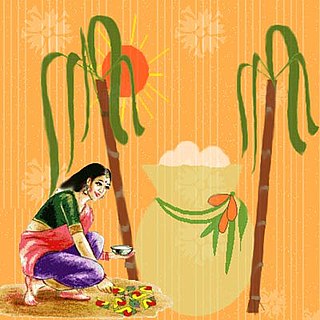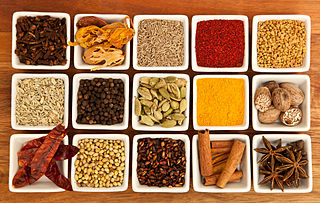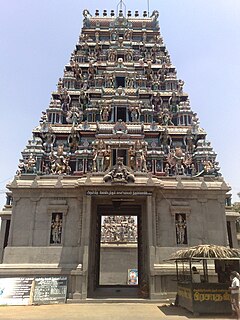
Pongal, is also referred to as Thai Pongal, is a multi-day Hindu harvest festival celebrated by Tamils in India and Sri Lanka. It is observed at the start of the month Tai according to Tamil solar calendar, and this is typically about January 14. It is dedicated to the Hindu sun god, the Surya, and corresponds to Makar Sankranti, the harvest festival under many regional names celebrated throughout India. The three days of the Pongal festival are called Bhogi Pongal, Surya Pongal and Maattu Pongal. Some Tamils celebrate a fourth day of Pongal as Kaanum Pongal.

Makara/Makar Sankranti or Uttarayan or Maghi or simply Sankranti, also known in West Bengal as Mokor Sonkranti, in Mithila as Til Sakraait and in Nepal as Maghe Sankranti, 'Sankranti' here means ‘transfer’, this day is considered as the transition day of Sun into Capricorn. Now the sun moves northwards in the Hindu calendar, dedicated to the deity Surya (sun), many native multi-day festivals are organised all over India. It is observed each year the day Sun enters the Capricorn zodiac which corresponds with the month of January as per the Gregorian calendar. It marks the first day of the sun's transit into Makara rashi (Capricorn).

Mariamman is a Hindu goddess of rain, predominant in the rural areas of South India. Her festivals are held during the late summer/early autumn season of "Aadi" throughout the Tamil Nadu and Deccan region, the largest being Aadi Thiruvizha. Her worship mainly focuses on bringing rains and curing diseases like cholera, smallpox, and chicken pox. Mariamman is worshipped in accordance with the local traditions as Pidari or the Gramadevatai. She is considered as the protector by many people residing in South India.

Tamil cuisine is a culinary style originating in the southern Indian state Tamil Nadu and other parts of South Asia like Sri Lanka. Both Vegetarian cuisine and Non-Vegetarian cuisine is popular among the Tamil people and has been since ancient times. However, meats along with rice, legumes and lentils are also popular. Dairy products and tamarind are used to provide sour flavors. On special occasions, traditional Tamil dishes are served in a traditional manner, using banana leaves in place of utensils. After eating, the banana leaves are then used as a secondary food for cattle. A typical breakfast meal consists of idli or dosa with chutney. Lunch includes Rice, sambar, Curd, kuzhambu, and rasam.
The Saptha Kannimar Padal is one of the sub-sections of Arul Nool which was the secondary scripture of Ayyavazhi. The author of the content is unknown. This contains the event's background and reason for the birth of the seven virgins in the world. Below are the names of Saptha Kannimar:
- Brameshwari
- Kaumari
- Vaaraahi
- Vaishnavi
- Chaamundi
- Maheshwari
- Indrani

Aadi Perukku commonly known as the Aadi monsoon festival and celebrated on the 18th day of the Tamil month of Adi. The festival pays tribute to water's life-sustaining properties. For the blessing of mankind with peace, prosperity and happiness, nature worship in the form of Amman deities are organized to shower Nature’s bountiful grace on human beings.pronunciation (help·info)
Nadavaru(Kannada:ನಾಡವರು) or Nadavar(Kannada:ನಾಡವರ) or Nador (Kannada:ನಾಡೋರ) is the name of a caste from Karnataka, India, found primarily in the coastal places of Uttara Kannada district formerly known as North Canara and nowadays they spread all over the World. They speak Nadavar dialect of Kannada called Nadavar kannada( ನಾಡವರ ಕನ್ನಡ ). Thay are a prominent business community of Uttara Kannada district of Karnataka, India.
Narchandupatti is a small town located 16 kilometres from Pudukkottai. Many members of the Nagarathar groups are among its inhabitants. The town contains historic temples. Various festivals and religious ceremonies take place here. There are many small villages around Nachandupatti including Pudur and Kottur.
Vadamanappakkam is a village located in the Tiruvannamalai district of Tamil Nadu, South India.
Kondayampalli is a village located near Thammampatti in Salem district in the Indian state of Tamil Nadu. Around 1,500 families are living in this village. Most of the people are farmers.
Mannankadu is a village in the Pattukkottai taluk of Thanjavur district, Tamil Nadu, India. It is one of the 36 villages falls under the Musugundan Nadu in the district. Mannangadu is one of the revenue village in its taluk. It is located on state highway Adirampattinam-Mannargudi-Kumbakonam, between Adirampattinam and Madukkur. It is the fourth largest village in Pattukkottai taluk, after Thamarankottai, Thambikottai and Aalathur. Total geographical area of the Village is 740.20 hectares.
Mattu Pongal is the third day of the four-day Pongal festival. According to the Gregorian calendar it is celebrated on 16 January. Though the name of the festival is specific to Tamil Nadu, it is also celebrated in other southern Indian states such as Andhra Pradesh and Karnataka. Makar Sankranti is a festival that marks the start of northern declination of the Sun from the Zodiac sign of Sagittarius to Capricorn, which according to Tamil calendar usually falls on 14 January.
Sembanarkoil is a panchayat town in Tranquebar taluk in Mayiladuthurai district in the Indian state of Tamil Nadu. The town is located in the historic Thanjavur area on the banks of the river Cauvery. Its history is centered around Swarnapureeswarar Temple.

Kondathu Kaliamman Temple is an Amman temple located at Pariyur near Gobichettipalayam in Tamil Nadu, India. There are other temples, namely Sri Amarapaneeswarar Temple, Sri Adinarayana Perumal Temple and Sri Angalamman Temple nearby.
Ginadi is a village in the Churu administrative region of the eastern corner of the Churu district of Rajasthan, India. The village is over 450 years old and lies north-east of Churu and 25 kilometres (16 mi) from Churu town. Bordering villages include Ranwa Ki Dhani, Lalasar, Ginadi Taal, Inderpura, Thalori and Bhamasi.
Tirupati Ganga Jatara is the annual folk festival of Tirupati, India. It is a week long event which falls between first and second weeks of May every year. This festival is to offer prayers to the goddess Gangamma, the Gramadevata of Tirupati.
Popularly called as the "Manchester of South India", the culture of Coimbatore is based on the culture of the Kongu Nadu region, the western part of Tamil Nadu.Distinctly different from that of any other city in India. Being a cosmopolitan city, the culture of the city reflects its diverse population which has resulted in a unique blend. Though it is generally considered a traditional city, Coimbatore is more diverse and cosmopolitan than other cities in Tamil Nadu. Traditional music, dance and all other art forms of Tamil Nadu are very popular in the city. One can find a unique blend of culture from traditional foods to fast foods, from ancient temple architecture to modern high-rises and from classical music and dance to the growing nightlife in the city. Coimbatore and its people have a reputation for entrepreneurship.

Mampatti is a village in Singampunari Taluk in Sivagangai District of Tamil Nadu State, India. It comes under Mampatti South panchayath union. It is a constituent of the ancient "MayilrayanKottai Nadu" once, which was a part of 'Sivagangai Seemai'. For administrative purpose, the whole Mampatti region was divided into three Revenue Villages namely South Mampatti, North Mampatti and Mampatti Devasthanam, each under the authority of a Village Administrative Officer. Mampatti Devasthanam is the region that covers the land of temples that belongs to Sivagangai Samasthanam Devasthanam.
Endiyur is a village panchayat located in Tindivanam, in the Villupuram district of Tamil-Nadu, India. The pin code of Endiyur is 604 001 and the telephone STD code is 04147. The native language of the village is Tamil. The village is connected to nearby places through SH-134. The nearest railway station is Tindivanam which is 5 km from the village. Puducherry is 32.8 km from Endiyur. The village has a grand Draupadi Amman temple in the center of the village and the villagers celebrate 7 to 10 days of temple festival in the month of May or June every year including theemidhi thiruvizha.
Vattakudi-North is an agricultural village in Pattukkottai taluk of Thanjavur district, located in the delta of Cauvery river. Pattukottai is the nearest town, which lies some 10 km to the west. Farming and related activities constitute the core economic drivers of this pastoral village. It comes under Pattukottai legislative constituency and Tanjore Parliament constituency. Vattakudi North is one of the 32 villages of Musugundan Community.






